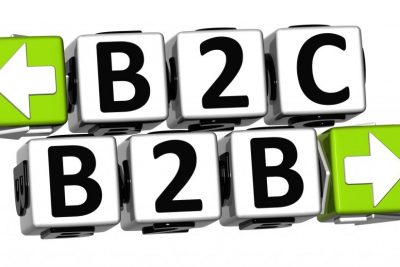


A year into my MBA and I realise this seemingly simple difference is really not a concept everyone is clear about. And when I mention everyone, I include people from ranks of CMOs to Marketing Professors at some renowned universities. And believe me, I am speaking with experience. Having discussed the concept for hours and hours with batchmates and finally emerging out as being able to clear all concepts beyond doubt, I am writing this article. Please feel free to disagree and post your views in the comments below.
Let’s start with the definitions - B2C - Business to Consumer. Now the key point to remember is that these customers are the end users and consume the product such that it is not sold further as any part or parcel of any other bigger or complex product.
On the other hand, B2B - Business to Business is a model where a business produces a good and sells it to another entity or business who uses it as a middle product to construct or assemble some other bigger product.
Now understand that when a software manufacturer, for example, Oracle creates a software product like Oracle Banking Platform (OBP) and sells it to a Business entity like National Australia Bank (NAB), it follows a B2C model and not the B2B model. Although NAB is a Business but still is the end consumer of OBP.
Let’s take Colgate as an example. Colgate sells its products like toothpaste to consumers via Wholesalers and Supermarkets like Big Bazaar. It does not sell its products directly to consumers but via Businesses like Big Bazaar. Still, it is a B2C model. The point to understand here is that Wholesalers and other middlemen are part of the Supply Chain process and do not play any other role. As the toothpaste reach the consumers as end products itself, it, therefore, is a B2C model.
The simplest examples of a B2B model would be Car Engines or Intel Processor Chips which are sold to Car manufacturers like Maruti Udyog Ltd. or Computer Manufacturing companies like Dell respectively.
However, companies like Castrol follow both the business models of B2B and B2C. When you buy Castrol Engine Oil directly from shops to use them in your vehicles, you form a part of the B2C model, while when you give your Cars for servicing to Maruti Service Stations or even in an Unorganised Car Servicing shop, the B2B model is in place.
Hope this will clear all doubts regarding the B2B and B2C business models and you would be in a better position to justify your answer in interviews and challenge your TCS panellists when they mention that they are a B2B business.